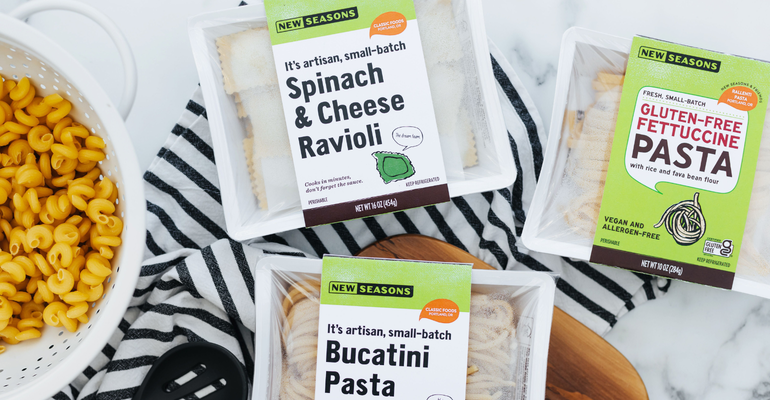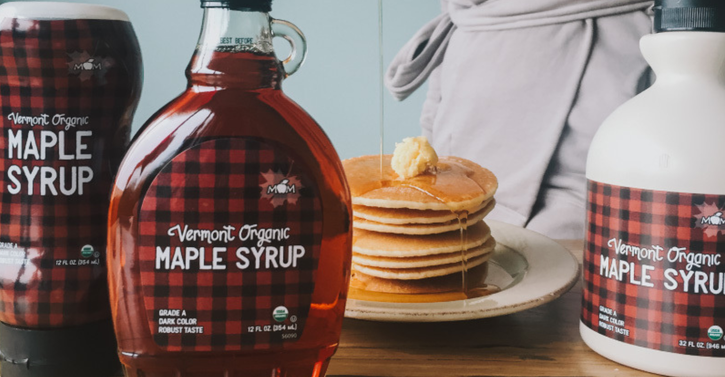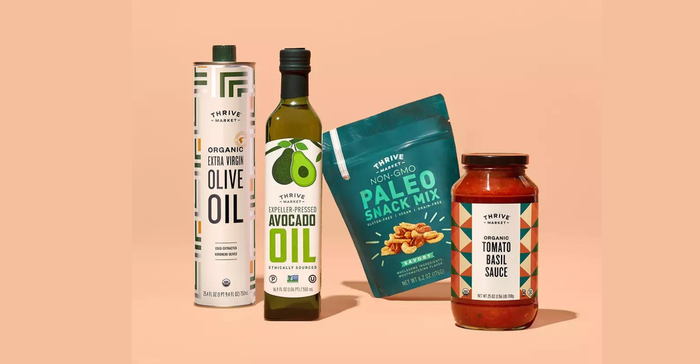June 25, 2023

Store brand sales set a record last year with $228.6 billion for sales in all U.S. retailing channels, according to the Private Label Manufacturers Association’s 2023 Private Label Report. That’s an increase of 11.3% compared to the year before.
“Store brands have evolved into powerful strategic tools that provide points of differentiation, increase competitive advantage and build consumer loyalty for a retailer,” says PLMA President Peggy Davies.
Many experienced retailers are using private-label brands to pivot quickly, Davies says, and leverage sales in opportunistic categories including health and wellness foods and non-food products, like floral, as they compete with other brands.
The key is understanding what local customers want and expect, coupled with a retailer’s ability to keep innovative products in stock and available. “When there’s quality, consistency and value in a product, you’ll keep the consumer coming back for more,” Davies says.
Retailers such as New Seasons Market, Thrive Market and MOM’s Organic Market have leaned into the trend by increasing what they offer or creating innovative partnerships. Here’s their advice.
Be unique and local
With 19 locations in the Pacific Northwest, New Seasons Market has built a robust store brand program through its line of private label products that sold $25.6 million in total partner brands in 2022.
The independent grocery store chain sources 80% of its nearly 300 partner brand products within 500 miles of its stores.
“As our brand has grown, for our established shoppers, it’s been a pretty steady thing in their basket,” says Chris Tjersland, director of brand development at New Seasons Market, which also is a certified B Corporation.
The key has been creating exclusive products that develop a cult-like following that customers seek, says Tjersland. Instead of making a national brand equivalent that’s exactly like something that somebody else is making, New Seasons Market works with local producers to target an untapped market.
“Create products that are truly unique,” Tjersland says. “Not a bunch of 'me too' type items.” It’s also about selling something that tastes better, he says.

When the founder of Dulcet Cuisine decided to sell her business, New Seasons Market worked out a deal to exclusively carry her salad dressing recipe. “We wanted to be opportunistic and go after categories we thought we could own,” he says.
To find the right the right tortilla chip, New Seasons Market tried about 50 different varieties before finding one that was unique. “It’s based on an in-house recipe we used to make ourselves and then we found a local producer that can duplicate it,” Tjersland says.
That doesn’t mean it’s the most economical product.
“Our tortilla chips aren’t the cheapest tortilla chip on the shelf. Our dry pasta is not the least expensive, but it’s produced locally by a very small vendor and it’s really good, so we sell a lot,” Tjersland says. “It’s finding that connection between supporting the right producer, the quality and our brand equity.”
Growth categories and other partnerships
Tjersland says much of the growth he’s seeing in private-label products is coming from ingredient categories including sauces, beans and rice as shoppers look for value and options to cook from home.
Unlike some retailers, New Seasons Market has limited its private-label branded frozen offerings but does sell store branded ice cream and partners with UNFI to sell its USDA organic-certified Wild Harvest private label branded pizza.
Tjersland’s advice to other retailers: When starting out, don’t get caught up in creating a huge line of products or in price. “It’s hard to compete on price, if you’ve got 10 stores and you’re trying to sell the cheapest,” he says.
Instead, he says, “If you’re a small retailer, do a few products really well with well-known local producers. Use the leverage of your brand.”
It’s okay to stay small, be picky
That’s exactly the approach MOM’s Organic Market takes.
With 24 stores, the East Coast retailer doesn’t have the volume to compete with a Sprouts Farmers Market or Whole Foods, says Lisa de Lima, vice president of grocery MOM’s Organic Market. Instead, it focuses on doing a few private-label products well.
“It can be a little daunting to find something that actually makes sense,” de Lima says.
Over the years, she has talked to Tjersland and others at New Seasons Market about their more robust private label program. Sourcing high quality products at the price point of a private label is a little tricky, she says, especially when trying to partner with local suppliers who are in higher concentration on the West Coast.
“I’m not saying there aren’t producers on this coast, it’s just not the same,” she says.
MOM’s Organic Market started its private label lineup with organic milk about 15 years ago. Since then, they’ve added other staples including olive oil, coconut oil, maple syrup, nut butters, almond and peanut SKUs.
“We would love to partner with more local suppliers and do more exclusives or private label,” de Lima says. “But if we’re going to put our name on it, it’s got to be organic. That’s always been a sticking point for us.”

Finding the right supplier can be difficult
Sourcing suppliers can be a daunting task. For many retailers, it starts by attending PLMA’s Annual Private Label Trade Show. “For smaller retailers, it’s extremely overwhelming,” de Lima says. “And some people literally won’t talk to you.”
De Lima remembers approaching “a huge booth” to discuss creating a private label ketchup. “They wouldn’t talk to me because they could tell I wasn’t able to move their 20 trailer loads a year,” de Lima says. “It’s a very intimidating show, but we did find our maple syrup provider there.”
Understand the minimums for placing orders: Do you have to take a tractor trailer load or can you split it? How many trailer loads must be taken in a year?
“You have to know,” de Lima says. “Some people make you do eight pallets per SKU, you need to take a tractor trailer load and you can’t mix pallets.”
Consider a collaboration
If launching a private-label product seems too daunting of a task, consider a collaboration. De Lima says collaborating with other brands, especially local producers, can make it easier than solely creating a private-label branded product.
“Doing a collaboration is more approachable and doable for smaller retailers, because the suppliers are smaller and they’re not expecting tractor trailer load volumes that your standard private-label folks want,” de Lima says.
When MOM’s Organic Market has collaborated with companies, like Trickling Springs Creamery (now South Mountain Creamery), they make sure to also include the supplier or brand name on the product. “It’s meant to show a partnership, and not just ‘Buy our ice cream,’” she says.
Its biggest program seller is coffee. MOM’s Organic Market partners with a local supplier, Mayorga Organics, to import organic, directly traded green coffee beans. It then roasts them in-house and packages the beans in compostable bags to sell as a bulk option.
“It starts with taste and cost,” de Lima says. “The first thing we’re gonna do is look at cost and see whether it is in line and whether we can get it on the shelf cheaper than some of the national brands.”
Other collaborations have included brands that aren’t local, including Lesser Evil, Michele’s Granola and Salazon Chocolate Co. de Lima’s advice: Collaborate to create exclusive flavors.
Be prepared, most collaborations are only temporary.
“Because these folks are small, as they grow it doesn’t necessarily make sense for them to keep doing the collaboration,” de Lima says. “I think that’s where New Seasons Market has done a really good job maintaining those relationships because we’ve sort of cycled in and out of them.”
“But,” she adds. “They’ve been good while they’ve lasted.”

Build strong partnerships with local suppliers
Creating strong partnerships with local suppliers is essential for many retailers. Negotiate with suppliers to create a “really fair price” Tjersland says.
“I always tell suppliers, ‘You have to make money,’” Tjersland says. “We have to be able to sell at a competitive price, but I don’t want to sacrifice one for the other.”
As a result, New Seasons Market offers long-term contracts to its suppliers. “We don’t renegotiate every two or three years,” Tjersland says. “We’re 10 years into the program and some of our suppliers have been with us since day one. It’s that kind of commitment.”
Instead, Tjersland encourages suppliers to build in the margins they need to continue to be sustainable. “And grow with us,” Tjersland says. “I think it makes for really healthy partnerships so when price increases come around, they’re able to absorb certain things because we’ve negotiated a fair price and they can make adjustments without price increases.”
Offer innovative financing to suppliers
To help its suppliers, New Seasons Market launched a partner fund, a mission-based, low-interest loan program that prioritizes BPOC, women, immigrant and LGBTQIA+ business owners. These “jump start loans” help small producers who are usually two or three years into their business and need money to move to the next level, Tjersland says.
The program has provided approximately $300,000 in loans since the program began in 2019. Recipients have included Hibisbloom, which used funds to transition its West African beverages from glass bottles to aluminum cans, and Ground Up, a nonprofit that makes New Seasons Market’s partner brand nut butter as well as its own products.
When Ground Up’s industrial mixer kept breaking, the nonprofit approached News Seasons Market for financial assistance, Tjersland says.
“Getting a new mixer basically doubled production,” he says. “At the same time, we worked with them to launch a sunflower butter, a unique recipe they created just for us. It was a cool collaboration.”
Use private label products for growth, fill market gaps
Thrive Market has approximately 6,000 total products including more than 700 privately branded products.
“A private label strategy is a vital part of any growing business because it allows you to remove costs from the production process to deliver incredible quality products,” says Jeremiah McElwee, chief merchandising officer at Thrive Market. In 2022, approximately 25% of its annual sales came from Thrive Market branded products, McElwee says.
McElwee says the retailer has created “an aggressive pipeline” of new private branded products. Thrive Market also uses its private label product development process to help the company’s mission and solve “countless other challenges” from sourcing more organic and regenerative agriculture products to creating more equitable economic partnerships with producers, he says.
About the Author(s)
You May Also Like
.png?width=700&auto=webp&quality=80&disable=upscale)




